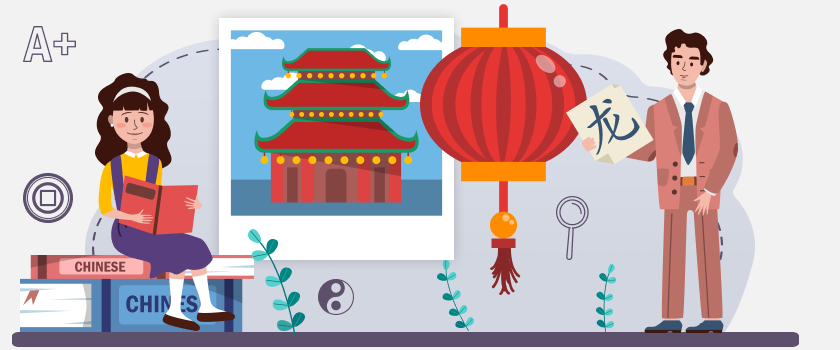Business & Finance
Is Your Chinese to English Translation Culturally Right?

Translation is more than replacing words. Especially when it’s from Chinese to English, one wrong phrase or missed tone can change the entire meaning, and even offend your audience. In this post, we’ll explore how to make sure your Chinese to English translation services go beyond grammar, and why hiring a professional translation agency matters now more than ever.
1. Translation Isn’t Just Language, It’s Culture
Most companies think that once a sentence is translated, the work is complete. It’s not. A line that is effective in Chinese will read cold or even offensive in English if one does not pay attention to cultural context. Translation that is unaware of tone, formality, or symbolism can kill deals, insult users, and hurt your brand.
Example: When KFC first entered China, their “Finger-lickin’ good” slogan was literally translated as “Eat your fingers off.” It shocked and confused shoppers. The company was quick to correct the error but not before initial customer trust suffered.
2. Typical Cultural Translation Errors
Idioms and Expressions:
English idioms such as “break a leg” or “hit the ground running” don’t translate directly in Chinese. Equally, vice versa. The instance is that the expression “add oil” (加油) is a common Chinese idiom for “keep going,” but sounds strange when translated word for word. A good translation localizes sense, rather than words.
Color Symbolism:
Color contributes significantly to cultural expression. In America, white is positive in that it conveys purity. In China, white may represent death and mourning. Try making white a prominent color for a celebratory email, your Chinese audience might be offended immediately. One U.S. SaaS company boosted its click-through rate more than 30% by merely altering its “Buy Now” button from white to red, good luck in China.
Numbers Matter:
The Chinese word for “death” sounds like the number 4. A real estate firm in the U.S. found this out the hard way when its $444,000 properties did not sell. When they rebranded those properties with new prices, interest increased. Cultural nuances matter in small ways and at real cost.
Levels of Formality:
English tends to be straightforward compared to Chinese. To say “you” in English may sound natural, but in Chinese, the more polite version “您” has an impact, particularly in business. A U.S. business lost a supplier relationship just because their e-mail sounded too direct. By changing their language with the assistance of a professional translation agency, the transaction was set back on track.
3. A Real-Life Example: Nike’s Cultural Blunder
Nike’s 2019 Chinese New Year commercial fell flat by depicting a little girl turning down gifts from seniors, intended to be funny, but interpreted as disrespectful. The pushback on Chinese social media came quickly. Thousands of viewers condemned the brand for being insensitive to cultural norms of seniority and gift-giving.
Nike suspended the campaign, hired cultural consultants, and re-shoot the ad with a correct cultural perspective. The new ad gained millions of likes and contributed to the comeback of the brand. This demonstrates that even international businesses can get away from essential cultural signals when they bypass professional review.
4. Why Use a Professional Translation Agency?
Collaborating with an experienced professional translation agency is more than crisp grammar. Here’s what you actually get:
Native Cultural Experts:
Professional translation agencies employ native speakers who know local slang, levels of politeness, and social etiquette. They realize that a literal translation is not necessarily the appropriate one.
Industry Knowledge:
Whether technology, medicine, law, or ecommerce, a native translator gets the terminology of your industry, and its cultural etiquette.
Style Guides and Glossaries:
Brands ensure consistency of tone and glossaries tailored to each agency. For example, if “用户体验” is always translated to “user experience,” messaging is clear and consistent.
Back Translation:
Whereby the content is translated back into the original language to pick up on any loss of meaning. It’s a vital step that most freelance translators miss.
Cultural Testing:
Some agencies run small focus groups to test visuals, tone, and messaging before a public launch. This can help avoid major public relations issues.
5. Quick Self-Check: Is Your Translation Culturally Safe?
If you’re unsure about your current translation, ask yourself:
- Does it sound natural to a native English speaker?
- Is the tone respectful and audience-appropriate?
- Are any visual elements (like color or symbols) culturally sensitive?
- Have idioms or jokes been translated into the local market?
- Is this legal or technical content reviewed by experts in the industry?
- Was the final version reviewed by native speakers?
If the answer to any of these is “no”, then your content could be causing more damage than good.
6. Startup Story: How CloudHero Got It Right
Boston SaaS firm CloudHero launched in Asia using a self-translated demo video. There was little engagement from viewers who fell off before the two-minute mark. They approached a professional translation company that provided both language and cultural assistance.
The agency dialed back the humor, translated idioms, and substituted clichéd visuals such as dragons with contemporary design elements that Chinese professionals liked. Consequently:
- Video completion rate increased from 45% to 88%
- Product trials went up by 27%
- Customer service calls fell by 15%
One good cultural translation converted confused leads into paying customers.
7. The Real Cost of Getting It Wrong
Getting it wrong in culture can result in:
- Wasted ad spend: If your message doesn’t resonate, you waste budget and trust.
- Brand damage: Sensitive content can go viral, wrongly.
- Legal issues: Misinterpreted contract terms can cause conflicts or lawsuits.
- Lost sales: Buyers who are confused or disrespected leave your site quickly.
Cutting corners on translation is more expensive in the long run.
8. Selecting the Best Translation Partner
To ensure your translation is culturally correct, select an agency that:
- Provides cultural consulting, and not merely word-for-word service
- Native-speaking linguists from China and the U.S.
- Is well-versed in your industry
- Offers back translation and quality control
- Has a track record of assisting US businesses expand internationally
Final Thoughts
Cultural correctness isn’t a choice; it’s a necessity if you expect to flourish globally. If your existing translation sounds dull, clumsy, or word-for-word too literal, it’s time to elevate. The finest Chinese to English translation companies don’t merely transfer words; they establish bridges. And the optimal professional translation firm ensures your message reads right, feels right, and converts right.















